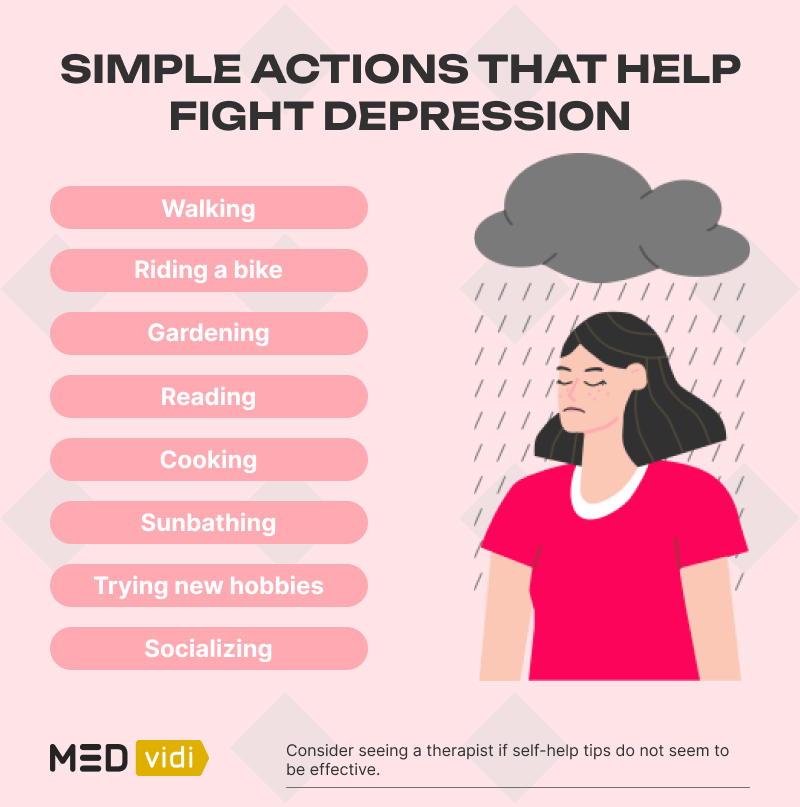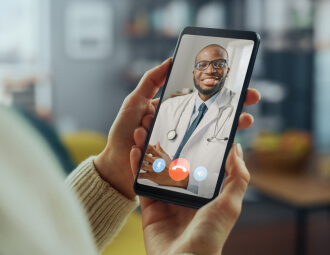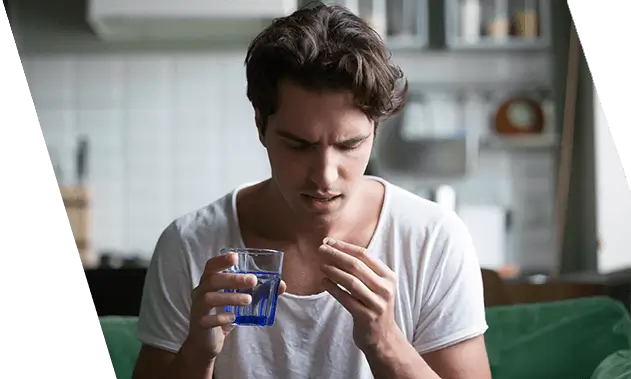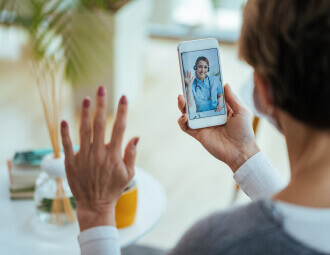People suffering from depression often struggle with their day-to-day life. They might face difficulties in family relations, social life, and at work. And while medical help like medications or therapy can alleviate symptoms of depression, one can also boost the effects of treatment by using self-help techniques.
However, apathy or anhedonia can make it difficult to choose a pleasant activity. Below, we’ve gathered 15 examples of things to do when depressed that can help reduce negative feelings and contribute to symptom relief.
Get comprehensive treatment for depression online at MEDvidi.
Prioritize Your Sleep
Adequate
Take a Quick Walk
Ride a Bike
Apart from walking, you can also ride a bike to fight symptoms of depression. Riding allows you to refocus and enjoy endorphins released from the body. If you don’t fancy cycling, you can try skateboarding or rollerblading.
Cook Something You Like
Spending some time in the kitchen also helps in overcoming depression.
Engage in Gardening
Read a Book
Getting lost in your favorite
Get personalized support and a detailed treatment plan from a mental health expert.
Listen to Music
Listening to your favorite
Unfortunately, most people struggling with depression often choose music that worsens rumination and sadness. While listening to such music is tempting, opt for upbeat songs that inspire positive emotions and make you feel better.

Do Yoga
Go for a Movie
Bask in the Sun
There’s sufficient evidence that
Mental health professionals can guide you well on your path to improved mental well-being.
Focus on Your Spirituality
Religion or
Change Your Thoughts
Thoughts directly affect your mood. Good thoughts improve your mood while negative thoughts may worsen your well-being. You can change negative thoughts by identifying, challenging, and restructuring them, and by practicing self-affirmations. If you can’t shake off negativity, consider seeing a therapist. Therapists use several treatment interventions, such as cognitive behavioral therapy (
Establish a Daily Routine
Depressive episodes can make it difficult for affected persons to stick to their schedules. Creating a routine can improve mental health by establishing a sense of normalcy, even if you suffer from stress and anxiety. You should have a routine that lists the basic things and self-care activities.
Try New Hobbies
Depression limits the interest and motivation to try new things. Therefore, you can list several
Improve Your Social Life
You shouldn’t struggle alone if you feel depressed and lonely. Reach out and make plans with your friends and family members. You can also join a
The Bottom Line
Depression among adults is common and is primarily characterized by feelings of hopelessness, sadness, and loss of interest. If left untreated, depression affects productivity at work, school, and normal life. Affected persons can keep depressive symptoms at bay using these easy tips mentioned above. If the symptoms remain for a long time, consider seeing a mental health professional.













